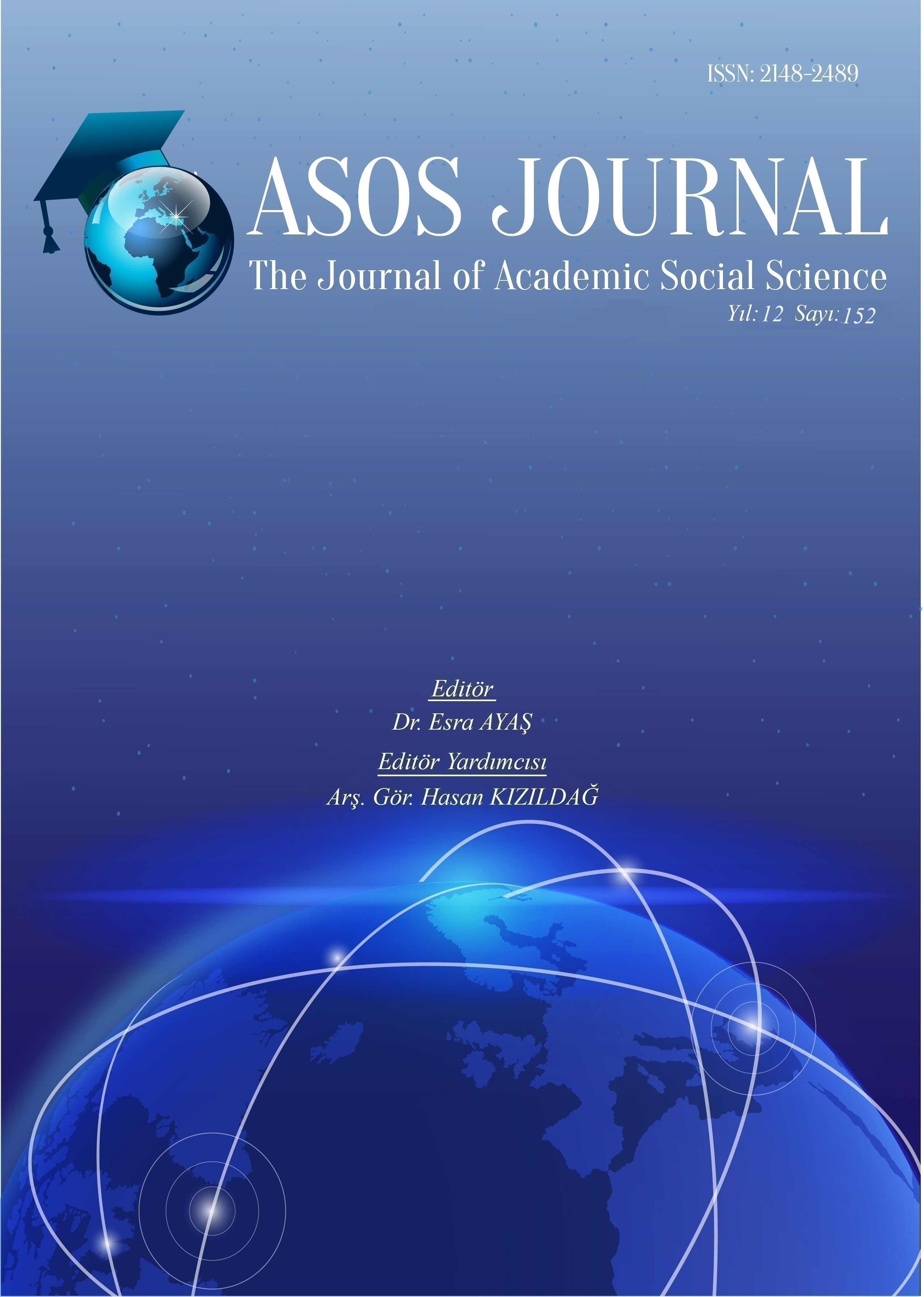Author :
Abstract
Bu araştırmanın amacı, dil ve konuşma bozukluğuna sahip çocukların annelerin sosyal ilişki süreçlerinin incelenmesi hedeflenmiştir. Araştırmada nitel araştırma yöntemlerinden biri olan durum çalışması deseni kullanılmıştır. Çalışmanın verileri yarı yapılandırılmış görüşme formu ile toplanmıştır. Araştırmanın çalışma grubu, İstanbul Sultanbeyli’de MEB’e bağlı bir anaokulunda dil konuşma bozukluğu tanısı olan 8 öğrenci annesinden oluşmaktadır. Veri toplama sürecinde görüşme tekniği kullanılarak yüz yüze görüşmeler yapılmıştır. Araştırmacılar tarafından hazırlanan görüşme soruları ile toplanan veriler, içerik analizi ile çözümlenmiştir. Araştırmada, çocuğun tanı alma sürecinde annenin yaşadıkları, annenin çekirdek aile içindeki ilişkileri, annenin sosyal çevre ilişkileri, annenin sosyal hayat değişiklikleri olmak üzere dört ana temaya yer verilmiştir. Araştırmanın sonucunda, çocuğun tanı alma sürecinde anneler genel olarak zorlanmaktadır. Çekirdek aile içi sosyal ilişkilerde annenin eşiyle ilişkisinde bir farklılık olmadığı ancak eşlerin rollerin ve sorumlulukların daha belirginleştiği, annenin ailedeki diğer çocuklar ile ilişkisinde ise farklılık olmadığı ancak kardeşler arasında iş birliği ve etkileşimin arttığını anneler tarafından ifade etmiştir. Annenin sosyal çevre ilişkilerinde ise akraba ve komşularıyla olan sosyal ilişkisinde genel olarak aynı zaman zaman uzak durma eğilimlerinin de olduğu ifade edilmiştir. Sosyal hayat değişikliklerinde ise bir farklılık olmadığını ancak psikolojik olarak çok yıprandıklarını ve çocuklarında böyle bir durum olmasaydı hayatlarında daha az stres ve üzüntü olacağını düşünmektedirler.
Keywords
Abstract
The aim of this research is to examine the social relationship processes of mothers of children with speech and language disorders. Case study design, one of the qualitative research methods, was used in the study. The data of the study were collected with a semi-structured interview form. The study group of the research consists of 8 mothers of students diagnosed with speech and language disorder in a kindergarten affiliated to the Ministry of National Education in Sultanbeyli, Istanbul. Face-to-face interviews were conducted using the interview technique during the data collection process. The data collected with the interview questions prepared by the researchers were analysed by content analysis. Four main themes were included in the study: the mother's experiences in the process of the child's diagnosis, the mother's relations within the nuclear family, the mother's social environment relations, and the mother's social life changes. As a result of the research, mothers generally have difficulties in the process of diagnosis of the child. In the social relations within the nuclear family, it was stated by the mothers that there was no difference in the mother's relationship with her husband, but the roles and responsibilities of the spouses became more apparent, there was no difference in the mother's relationship with other children in the family, but the cooperation and interaction between siblings increased. In the social environment relations of the mother, it was stated that her social relations with her relatives and neighbors were generally the same and she also tended to stay away from them from time to time. They think that there is no difference in their social life changes, but that they are psychologically very worn out and that there would be less stress and sadness in their lives if their children did not have such a situation.





